December 2, 2022
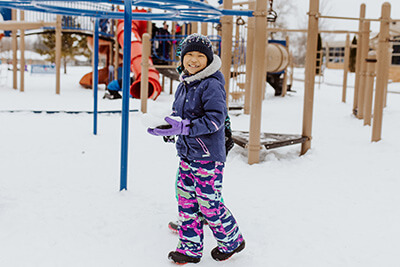 With any relocation, there are many moving parts as families transition their lives somewhere new–one of them being your first Minnesota winter! Minnesota has a climate that allows us to experience four distinct seasons. With the right mindset and preparation, experiencing the transformation from one season to the next is inspirational and invigorating. Here’s how you can set your family on a path to thrive, not just survive, through your new favorite season here.
With any relocation, there are many moving parts as families transition their lives somewhere new–one of them being your first Minnesota winter! Minnesota has a climate that allows us to experience four distinct seasons. With the right mindset and preparation, experiencing the transformation from one season to the next is inspirational and invigorating. Here’s how you can set your family on a path to thrive, not just survive, through your new favorite season here.
Keep Kids Moving
The winter months can get long here in Minnesota. It’s cold outside and there is less daylight, so it can be hard to stay motivated, but physical activity is important for everyone all year round–especially young children. Physical activity is vital to a child’s success emotionally, physically, and mentally. It helps them build and maintain healthy bones, muscles, and joints, and prevents chronic diseases. Physical activity is beneficial for the development of cognitive skills, which can help kids stay more focused in the classroom. It also helps kids sleep better and significantly reduces stress and symptoms of anxiety and depression.
At Mounds Park Academy, we believe in the importance of physical activity and encourage students to be active outdoors throughout the year. We know that children need time to play and socialize, so our students have recess every day—even in the winter. Although it’s colder outside, all it takes is a few extra layers. The benefits are seen in the classroom as well as on the rosy faces of our students.
MPA students also embrace winter through their activities and athletics, such as the Middle and Upper School Alpine (downhill) ski team, Middle and Upper School Nordic (cross country) ski team, the boys hockey team, grade level group outdoor adventures like snowtubing, and Northern MN i-Term adventures like dogsledding. Read More
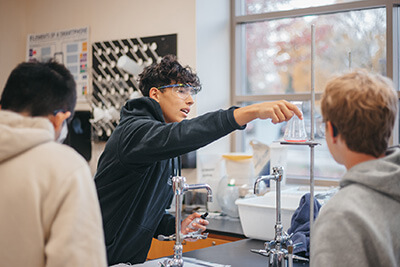 At Mounds Park Academy, Upper School is demanding, but not draining. The rigorous college-preparatory curriculum is balanced and always focused on the application of learning rather than memorization. Whether studying chemical processes up close and hands-on, diving deep into constitutional law, or taking on a character through the art of improvisation, our students connect their profound content knowledge to the world in ways that prepare them to make an impact.
At Mounds Park Academy, Upper School is demanding, but not draining. The rigorous college-preparatory curriculum is balanced and always focused on the application of learning rather than memorization. Whether studying chemical processes up close and hands-on, diving deep into constitutional law, or taking on a character through the art of improvisation, our students connect their profound content knowledge to the world in ways that prepare them to make an impact.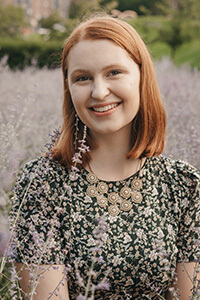 We are launching a special story series where we profile Dreamers, Doers, Freethinkers, and Right Makers in the MPA community to inspire one another. Do you have an impactful story to share? Email communications@moundsparkacademy.org!
We are launching a special story series where we profile Dreamers, Doers, Freethinkers, and Right Makers in the MPA community to inspire one another. Do you have an impactful story to share? Email communications@moundsparkacademy.org!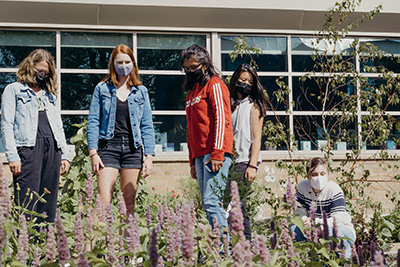 Cassie’s commitment to sustainability does not go unnoticed among our community. In fact, it led to Dr. Jurewicz—the interim Lower School director—approaching the senior, asking if she would take on the task of getting MPA’s old aeroponic tower up and running. Since this tower has been unused in the building for decades, Dr. J saw an opportunity to put it to good use and have an experienced student teach younger peers about an important topic. Shortly after, a senior service project was born, as Cassie agreed to use this growing equipment to teach younger students about aeroponics and sustainable growing. Cassie will show students what the aeroponic tower can grow, how it works, and even have some taste tests from whatever is harvested.
Cassie’s commitment to sustainability does not go unnoticed among our community. In fact, it led to Dr. Jurewicz—the interim Lower School director—approaching the senior, asking if she would take on the task of getting MPA’s old aeroponic tower up and running. Since this tower has been unused in the building for decades, Dr. J saw an opportunity to put it to good use and have an experienced student teach younger peers about an important topic. Shortly after, a senior service project was born, as Cassie agreed to use this growing equipment to teach younger students about aeroponics and sustainable growing. Cassie will show students what the aeroponic tower can grow, how it works, and even have some taste tests from whatever is harvested.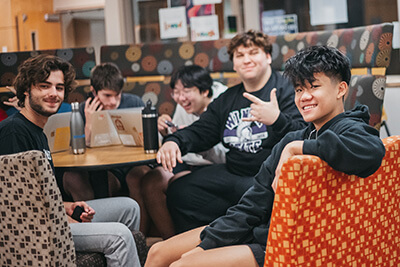 The following essay is adapted from MPA Class of 2023 member Justin Choi’s Senior Speech.
The following essay is adapted from MPA Class of 2023 member Justin Choi’s Senior Speech.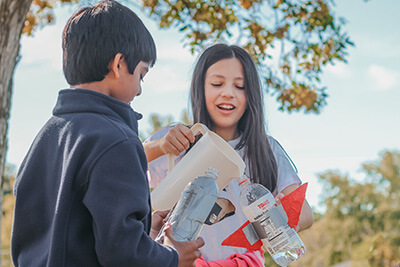 If you have ever dreamed of a way to experience life at MPA in a day, the PreK-12 Preview is the perfect opportunity to discover why you belong here. You and your entire family are warmly invited to attend the MPA Preview on Sunday, November 6 at 2 PM.
If you have ever dreamed of a way to experience life at MPA in a day, the PreK-12 Preview is the perfect opportunity to discover why you belong here. You and your entire family are warmly invited to attend the MPA Preview on Sunday, November 6 at 2 PM.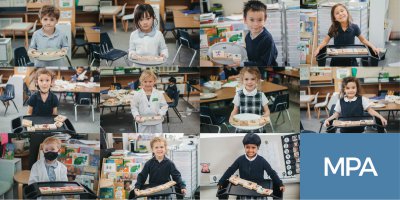 MPA’s Makerspace intentionally provides students with opportunities to construct meaning through making with practical, hands-on, interdisciplinary, problem-based projects. In this space, students of all ages use design thinking to develop empathy with individuals and design creative solutions to problems through an iterative process involving brainstorming, prototyping, and testing. The Makerspace allows for the blend of technical and creative skills conducive to developing a well-rounded individual.
MPA’s Makerspace intentionally provides students with opportunities to construct meaning through making with practical, hands-on, interdisciplinary, problem-based projects. In this space, students of all ages use design thinking to develop empathy with individuals and design creative solutions to problems through an iterative process involving brainstorming, prototyping, and testing. The Makerspace allows for the blend of technical and creative skills conducive to developing a well-rounded individual.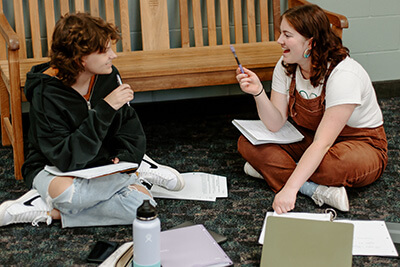 from Dr. Jules Nolan, MPA school psychologist
from Dr. Jules Nolan, MPA school psychologist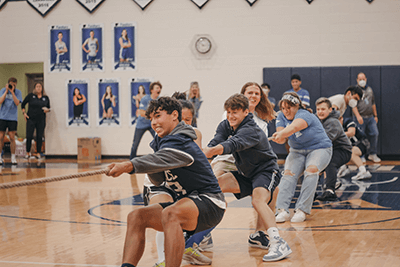 Homecoming 2022: We Are Panthers was a huge success!
Homecoming 2022: We Are Panthers was a huge success!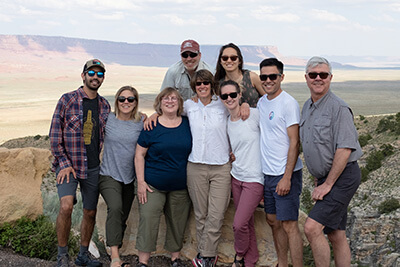 Nastya Vershenya ’01 and Sarah Hanson Salgado ’03 are each other’s chosen family. Their story begins in Sarah’s seventh grade year at MPA, when, as an only child, MPA’s call for families to host an international student was appealing and exciting. Both Sarah’s family and Nastya, coming as an international student to MPA from Minsk, were looking for the same thing, but none of them expected to gain a bonus sister/daughter in the process.
Nastya Vershenya ’01 and Sarah Hanson Salgado ’03 are each other’s chosen family. Their story begins in Sarah’s seventh grade year at MPA, when, as an only child, MPA’s call for families to host an international student was appealing and exciting. Both Sarah’s family and Nastya, coming as an international student to MPA from Minsk, were looking for the same thing, but none of them expected to gain a bonus sister/daughter in the process.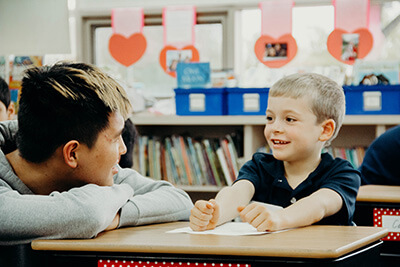 Parent of alumni and fourth grade teacher DeeDee Stacy shares her experience hosting Lyndon Lyu ’20.
Parent of alumni and fourth grade teacher DeeDee Stacy shares her experience hosting Lyndon Lyu ’20.